Reading a National Geographic article highlighting the terrible environmental cost of palm oil production , I was reminded of my journey to Borneo some years ago. I had travelled to Kalimantan’s Tanjung Puting National Park, the home of a key conservation project run by the Orangutan Project International.
A mysterious place
At the time I was writing a travel guide to the island for Footprint Handbooks, a UK based publisher. I’d always wanted to travel to the vast and ‘mysterious’ island of Borneo. Borneo is an island on a massive scale: it covers an area roughly equivalent to Spain and the UK combined. The island is famed for its incredible biodiversity and natural beauty, so I was thrilled to get this writing commission. On my journey I did indeed get to see the island’s incredible natural beauty, but I also got to see first-hand the shocking reality that human greed and destruction has wreaked on this wonderland.
The dream and the reality
Half a century ago, Borneo was almost entirely clothed in vast rainforests. It was truly the island of my dreams as a boy, and perhaps not that different from the place that great British explorer and scientist Alfred Russel Wallace had journeyed to more than 150 years ago. On that journey, Wallace had formulated the theory of evolution at the same time as Charles Darwin. Fast forward to the present day and half of this huge island has been logged or deforested for agro-industry. Palm Oil, a product that can now be found in products ranging from shampoo to cooking oil to ‘bio’ fuels, plays a key role in this sad tale.
Kalimantan
Kalimantan claims the majority of Borneo’s land surface and it’s also the hardest part of the country to travel around. I’d been in contact with the NGO The Orangutan Foundation and they’d offered to take me to Camp Leakey, in the Tanjung Puting National Park, in Kalimantan’s remote southern region. It wasn’t an offer I was going to turn down, this was a once in a lifetime opportunity!

Appetite for destruction
Getting to the park is a quite a long haul. I first had to fly down to Jakarta, Indonesia’s chaotic sprawling capital on the Island of Java, before taking flight to Banjarmasin, the regional capital in this part of Borneo. From Banjarmasin it was a 20-hour overland drive to the town of Pangkalanbun. It’s an arse numbing ride that is perhaps most memorable for its shocking vista of human destruction. Any notion that Borneo is a ‘pristine’ wilderness will be dispelled by the ride. For almost the entire length of this journey you pass nothing but an ecologically ‘dead’ monoculture of palm oil. Only decades before this same land would have been home to some of the planet’s most diverse, wildlife rich environments: lowland rainforests, mangroves along the coasts, and dense peat forests.
The living forest
To see what this forest was like before the arrival of ‘civilisation’, you must head into the National Park. From the small town of Kumai near Pangkalanbun we took a slow moving Klotok, an Indonesian covered motorboat, up the jungle swathed Sekonyer river. It was the only way to reach our destination – Camp Leakey. Travelling on the slowly chugging boat with my Indonesian crew was a fantastic ‘classic jungle’ experience, utterly removed from the depressing monotony of the palm oil plantations. As we travelled upstream the river narrowed, dense jungle closing in around the narrowing river as we made our way towards the rehabilitation centre. Suddenly the forest was alive with life – bizarre looking proboscis and grey leaf monkeys bounding in the trees or starring at us curiously, majestic hornbills with their strange casqued heads, flapping through the trees.
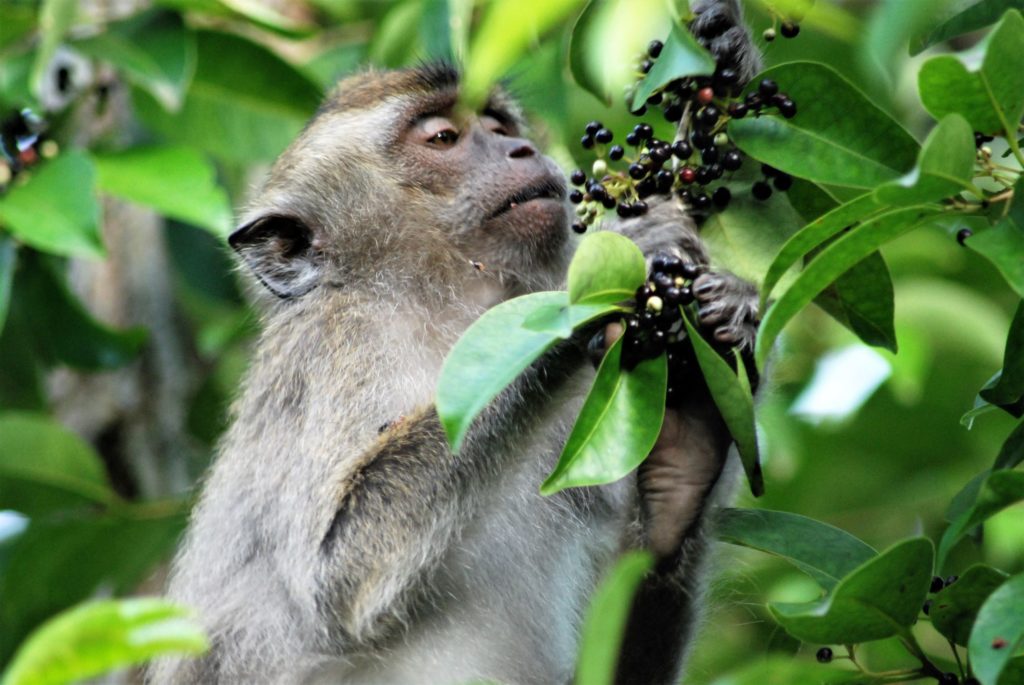
Awakening a giant from his slumber
At one point a storm caught up with us and the heavens opened as they only can in the tropics – a downpour so furious and intense it felt like I need diving gear just to walk around on deck! A downed tree blocked our route upriver. Two of the crew headed into the water to cut the tree and open our path once again. As they were working, I noticed they had disturbed the nap of a huge reticulated python – snakes that can reach up to 10 m long, the world’s longest serpent. This snake wasn’t that big, maybe 4 metres, but it was still awesome to behold. Amongst the reeds, close to where my Indonesian friends were working, the snake slowly and meticulously awoke and uncoiled in the water, moving, almost in slow motion away from us into denser cover. Away from our ‘human’ disturbance. It was an entrancing vision, beautiful and strange at the same time.

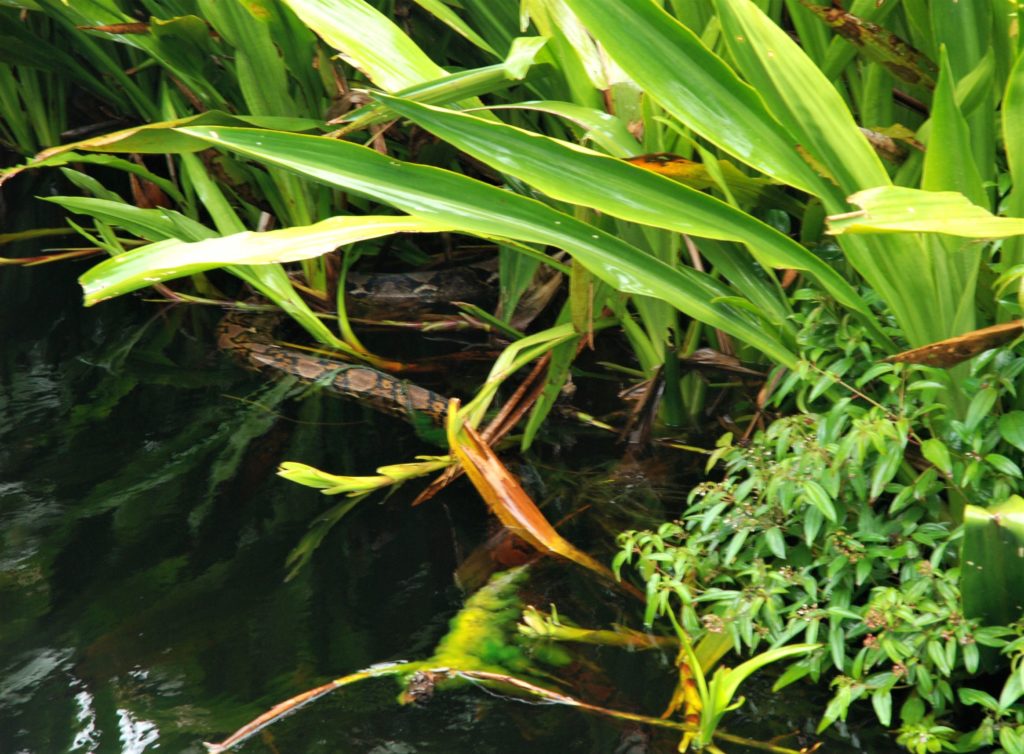
A magic welcome
On my arrival in Camp Leakey I was greeted by a reception that I will never forget, a deeply emotional moment for me. The camp had a small wooden peer, and obviously the noise of our boat’s arrival had caught the attention of the camp’s residents. As we tied up, one of the camp’s more curious personalities, a beautiful young female orangutan, wandered down the peer, totally of her own accord. She took my hand gently in hers with a friendly manner and escorted me back towards the camp and her home. It was an incredible experience! Her intelligence and curious personality were impossible to ignore. The remarkable similarity to ‘us’ in her hands, her eyes, the way she looked at me, was breath-taking. I’ll never forget that.
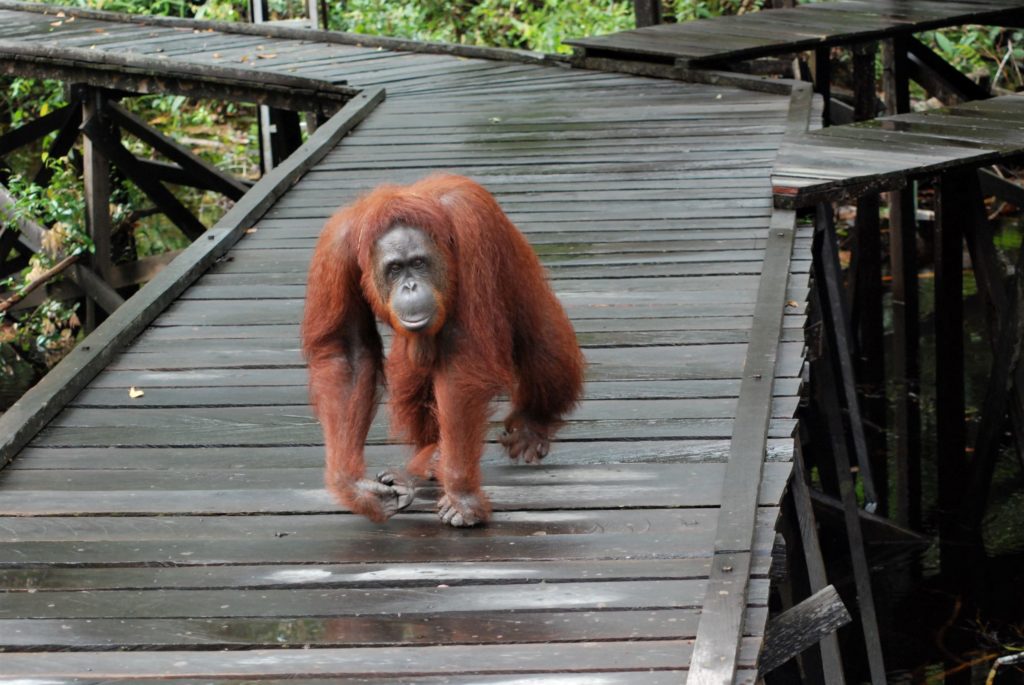
The Foundation
Over the next couple of days, I got to see the incredible work the Orangutan Foundation is doing and I got to meet many of the camp’s orangutans: from impressive huge, semi wild males, hanging cautiously on the edge of my vision in the deep forest, to orphaned youngsters. Many of the orangutans here are orphans, animals whose homes we, humans, have destroyed. Destroyed to make soap, to make oil for cereal bars or shaving gel. They have nowhere left to go, but the camp staff are working tirelessly to give these wonderful gentle animals a new start.
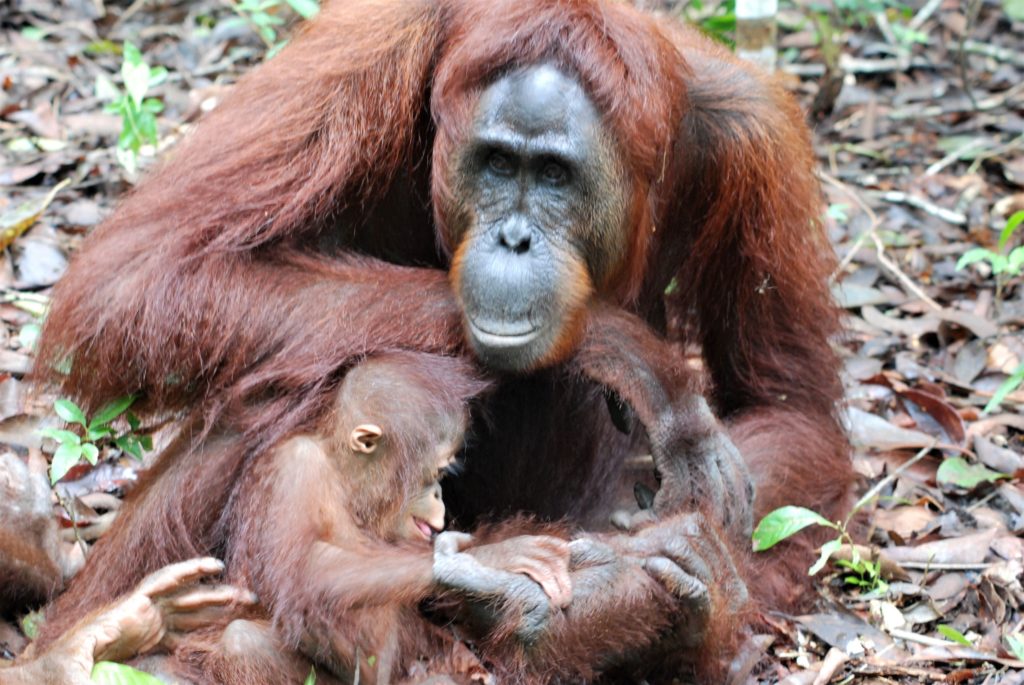
I find it hard to understand how we, as a species, can so brutally abuse such creatures; creatures that are so similar to us, apart from their lack of aggression. At the same time, I also felt inspired by some of our species’ desire to help others – those workers from the OFI.
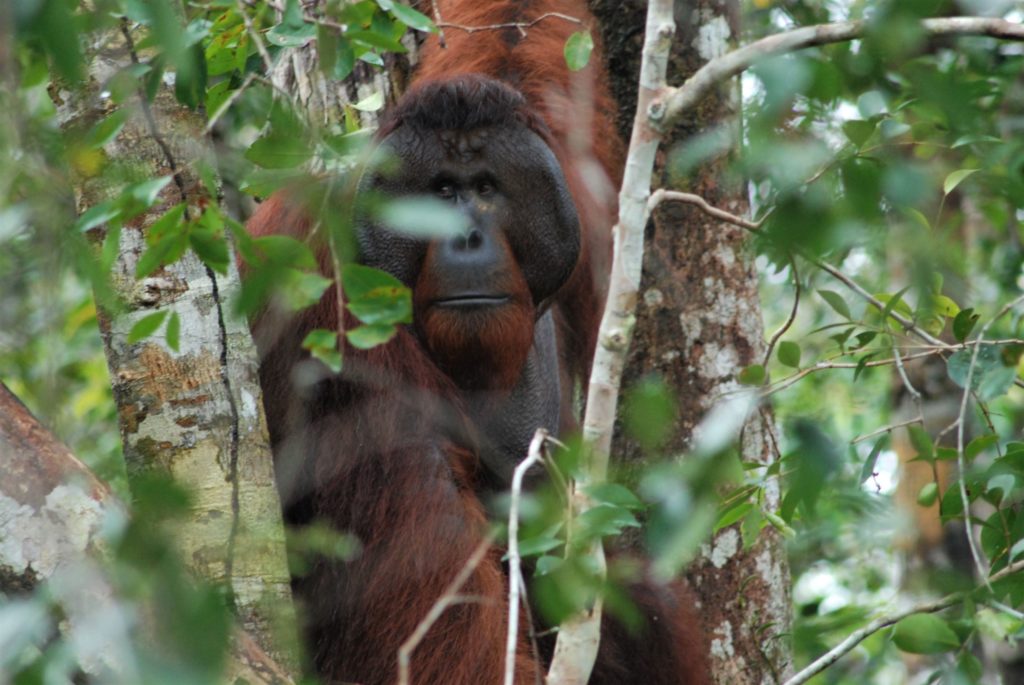
A person of the forest…
The forests of Tanjung Puting offer refuge to many other endangered species apart from Orangutans. Rare clouded leopards, sun bears, false gharial crocodiles and over 200 species of birds amongst them. In my memory it’s truly the Borneo of my childhood dreams. When the time came, I didn’t want to leave, but I will always feel privileged to have spent that little time in Tanjung Puting, and to have been walked down the peer by my orangutan friend. A person of the forest indeed.
You can find out more about Camp Leakey and the Orangutan Foundation at www.orangutan.org/rainforest/tanjung-puting-national-park/
Our impact and our responsibility
As a final note I would say that we all have a responsibility and an interest in protecting our planet’s rainforests. They are huge stores of carbon, especially ‘peat’ forests such as those in southern Borneo. Destruction of rainforest releases carbon and speeds ‘climate change’. Loss of our amazing biodiversity is just as critical and tragic. We can all look for more sustainable alternatives to palm oil, or palm oil that is harvested in a more sustainable way. Borneo is a long way away, but products that end up in western pharmacies and supermarkets often start their life in Borneo’s plantations.
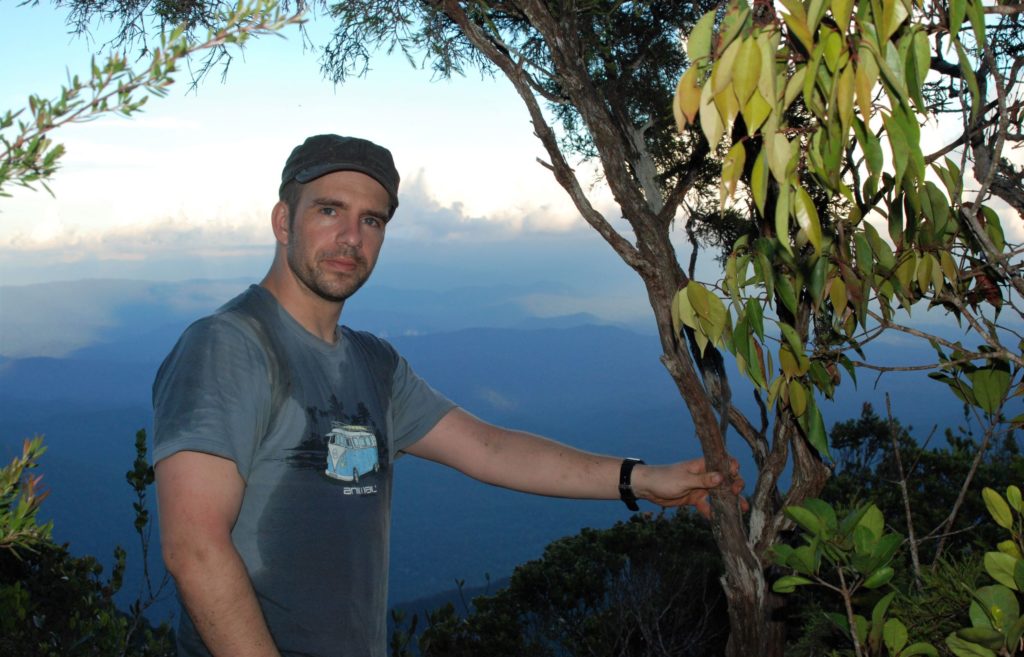
Read more conservation focused articles here:
https://thelacandongringo.com/the-lions-roar-serengeti/
Land of the Lynx: a weekend of hope and despair in Doñana
Saving the best for last: giant otters of Manu National Park
Making YOUR difference – small steps towards a greener world
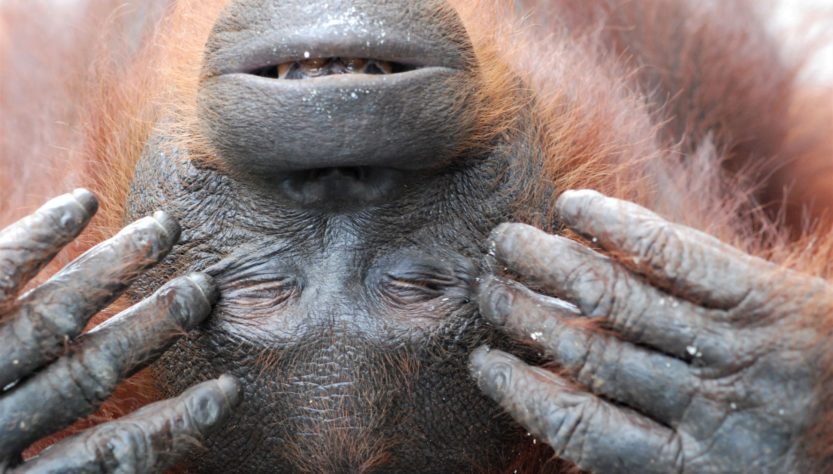
Thank you Steve,
Have been sharing the message as much as I can on FB etc . Have found where I can get Soap and peanut butter! and have written to Biscuit manufacturers about the inclusion of this OIL.which one can find in almost every product on supermarket shelves. Much of this is due to the high cholesterol scare when,animal fats were replaced by this oil, and the growth of Veganism. Plus of course GREED for vast profits from agribusinesses and Population Growth.. I knew folk who had lived before us who were omnivores and lived to 95. and more. My gt gt grandma was one ! Others live to 100.and moare. It is simply a question of having a balanced and varied diet.
Anne,
Many thanks for your comments…Another emerging way of dealing with the palm oil problem is direct trade – were you trace the exact source of palm oil in products – and thus favour palm oil producers who work in the most ethical manner (not cutting primary forests and reforesting tracts of land.) Borneo has lost more 50 percent of it’s forests in half a century. A shocking figure. I hope we can find a way to protect what remains!